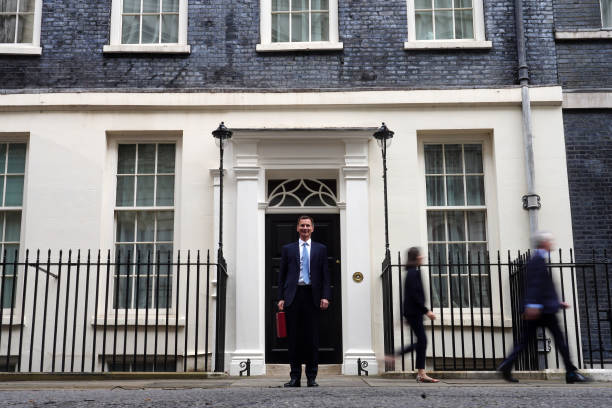Businesses were hunting among the slim pickings for fresh cash to boost growth across the UK

There wasn’t much fresh cash for businesses in yesterday’s Budget. But it certainly showed a calmer approach after the political upheaval of only months ago, writes Tim Sarson
Yesterday was a Budget with few surprises. It addressed the immediate urgent concerns, and didn’t try to peak too far into an uncertain future. It was still clear in its aims: it wants to change behaviours, encourage business investment and the economically inactive back into work. The million dollar question will be whether this approach will work and whether it will have the desired subsequent impact on our economy.
On business taxes it had been clear that the corporation tax rate rise was going ahead, as much as many in the City might’ve hoped otherwise. But in an attempt to ease the pain of this combined with the loss of the super-deduction, the Chancellor announced the introduction of full expensing for qualifying spend on plant and machinery for the next three years. The aim is to make the measure permanent when the economy stabilises.
This was the most expensive tax announcement, and the objective is to encourage businesses to accelerate capital expenditure to see the knock-on economic effects, ahead of a general election. Offering an up-front tax deduction means it generates tax savings quickly for taxpayers. But often large projects are not easy to accelerate. As we saw with the super deductions, businesses put plans into place years in advance and changing them at the whims of No11 is not easy.
By limiting the relief to plant and machinery it also focuses largely on manufacturing businesses which often operate with low margins. To the extent full expensing generates a loss and there is no mechanism for surrendering losses for a cash payment, the relief may not be too valuable.
While the replacement for the super-deduction will be welcomed, the temporary nature demonstrates a continued lack of long-term strategy which can be damaging to investment. An underlying message seems to be that George Osborne’s orthodoxy of a low headline rate with a broad base has been turned on its head.
We knew the government was concerned about economic inactivity and here we saw other large announcements. The government is providing 30 hours a week of free childcare for eligible working parents of children aged nine months up to three years in England. It is also extending the annual allowance for pensions savings to £60,000 and abolishing the pensions lifetime allowance.
As expected, household finances are being helped by a freeze to fuel duty, together with an extension of the 5p reduction for a further year, and a continuation of the Energy Price Guarantee for a further three months.
But there were other areas where the pickings felt lean. The Investment Zone initiative sounded fairly minimal, with 12 investment zones each able to access interventions worth up to £80m over five years. The limitation of full expensing to plant and machinery spend excludes large sectors such as infrastructure and construction. Major business rates reform seems to have been kicked down the road once again. And there were no measures to address some of the cliff-edges and distortions in the tax system, such as the VAT threshold.
Yesterday’s Budget was a plethora of smaller announcements. The most expensive tax measure is full expensing, but this is a timing difference and shows a healthy positive number in year five as the effect reverses.
Rarely have we seen a Budget where pretty much every announcement had been trailed in advance. The only rabbit was the abolishment of, rather than increase in, the pensions lifetime allowance.
At the very least, it reflected a calmer approach following months of political and economic upheaval.